
Urvashi Vaid was an Indian-born American LGBT rights activist, lawyer, and writer. An expert in gender and sexuality law, she was a consultant in attaining specific goals of social justice. She held a series of roles at the National LGBTQ Task Force. She is the author of Virtual Equality: The Mainstreaming of Gay and Lesbian Liberation (1995) and Irresistible Revolution: Confronting Race, Class and the Assumptions of LGBT Politics (2012).

Eros and Civilization: A Philosophical Inquiry into Freud is a book by the German philosopher and social critic Herbert Marcuse, in which the author proposes a non-repressive society, attempts a synthesis of the theories of Karl Marx and Sigmund Freud, and explores the potential of collective memory to be a source of disobedience and revolt and point the way to an alternative future. Its title alludes to Freud's Civilization and Its Discontents (1930). The 1966 edition has an added "political preface".

Gay Science: The Ethics of Sexual Orientation Research is a 1997 book by the philosopher Timothy F. Murphy about scientific research on sexual orientation.

Virtually Normal: An Argument About Homosexuality is a book about the politics of homosexuality by the political commentator Andrew Sullivan, in which the author criticizes four different perspectives on gay rights in American society, which he calls the "Prohibitionist", "Liberationist", "Conservative", and "Liberal" views, seeking to expose internal inconsistencies within each of them. He also criticizes the philosopher Michel Foucault and gay rights activists he considers influenced by Foucault, and argues in favor of same-sex marriage and an end to the don't ask, don't tell policy, which banned service by openly gay people in the US military. However, he makes a case against legislation aimed at preventing private discrimination against gay people.

Why Freud Was Wrong: Sin, Science and Psychoanalysis is a book by Richard Webster, in which the author provides a critique of Sigmund Freud and psychoanalysis, and attempts to develop his own theory of human nature. Webster argues that Freud became a kind of Messiah and that psychoanalysis is a pseudoscience and a disguised continuation of the Judaeo-Christian tradition. Webster endorses Gilbert Ryle's arguments against mentalist philosophies in The Concept of Mind (1949), and criticizes many other authors for their treatment of Freud and psychoanalysis.

The Assault on Truth: Freud's Suppression of the Seduction Theory is a book by the former psychoanalyst Jeffrey Moussaieff Masson, in which the author argues that Sigmund Freud, the founder of psychoanalysis, deliberately suppressed his early hypothesis, known as the seduction theory, that hysteria is caused by sexual abuse during infancy, because he refused to believe that children are the victims of sexual violence and abuse within their own families. Masson reached this conclusion while he had access to several of Freud's unpublished letters as projects director of the Sigmund Freud Archives. The Assault on Truth was first published in 1984 by Farrar, Straus and Giroux; several revised editions have since been published.
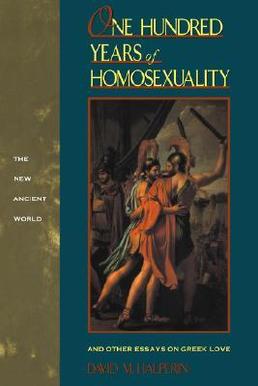
One Hundred Years of Homosexuality: and other essays on Greek love is a 1990 book about homosexuality in ancient Greece by the classicist David M. Halperin, in which the author supports the social constructionist school of thought associated with the French philosopher Michel Foucault. The work has been praised by several scholars, but criticized by others, some of whom have attributed to Halperin the view that the coining of the word "homosexuality" in the nineteenth century brought homosexuality into existence. The book was often reviewed alongside John J. Winkler's The Constraints of Desire (1990).

The Man of Reason: "Male" and "Female" in Western Philosophy is a book about the association between maleness and reason in western philosophy by the Australian philosopher Genevieve Lloyd. The work received positive reviews. It has been called a twentieth century classic of feminist thought, and is widely read in the Nordic countries.

A Separate Creation: The Search for the Biological Origins of Sexual Orientation, also published with the subtitle How Biology Makes Us Gay, is a 1996 book about the development of sexual orientation by the journalist Chandler Burr. It received mainly positive reviews, commending it as a useful discussion of scientific research on sexual orientation and the politics surrounding the issue.
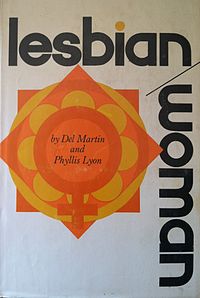
Lesbian/Woman is a work by the feminist and gay rights activists Del Martin and Phyllis Lyon, in which the authors discuss what it means to be a lesbian. The book was influential and is considered a foundational text of lesbian feminism. Reviewers believed that it benefited from its authors' personal experience as lesbians, and endorsed its criticisms of the treatment of lesbians by religious and professional organizations.
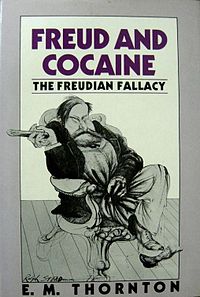
The Freudian Fallacy, first published in the United Kingdom as Freud and Cocaine, is a 1983 book about Sigmund Freud, the founder of psychoanalysis, by the medical historian Elizabeth M. Thornton, in which the author argues that Freud became a cocaine addict and that his theories resulted from his use of cocaine. The book received several negative reviews, and some criticism from historians, but has been praised by authors critical of Freud and psychoanalysis. The work has been compared to Jeffrey Masson's The Assault on Truth (1984).

Marxism and the Oppression of Women: Toward a Unitary Theory is a book by the sociologist Lise Vogel that is considered an important contribution to Marxist Feminism. Vogel surveys Karl Marx and Friedrich Engels's comments on the causes of women's oppression, examines how socialist movements in Europe and in the United States have addressed women's oppression, and argues that women's oppression should be understood in terms of women's role in social reproduction and in particular in reproducing labor power.
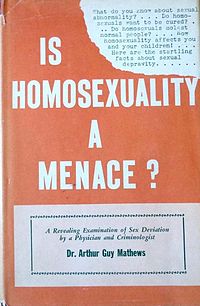
Is Homosexuality a Menace? A Revealing Examination of Sex Deviation by a Physician and Criminologist is a 1957 work about homosexuality by Arthur Guy Mathews. The work received negative reviews.

The Homosexual Matrix is a book by American psychologist Clarence Arthur Tripp, in which the author discusses the biological and sociological implications of homosexuality, and also attempts to explain heterosexuality and bisexuality. The book was first published in 1975 by McGraw-Hill Book Company; it was republished in a revised edition in 1987. Based on his review of the evidence, Tripp argues that people do not become homosexual due to factors such as hormone levels, fear of the opposite sex, or the influence of dominant and close-binding mothers, and that the amount of attention fathers give to their sons has no effect on the development of homosexuality. He criticizes Sigmund Freud and argues that psychoanalytic theories of the development of homosexuality are untenable and based on false assumptions. He maintains that sexual orientation is not innate and depends on learning, that early puberty and early masturbation are important factors in the development of male homosexuality, and that a majority of adults are heterosexual because their socialization has made them want to be heterosexual. He criticizes psychotherapeutic attempts to convert homosexuals to heterosexuality and argues in favor of social tolerance of homosexuality and non-conformist behavior in general.
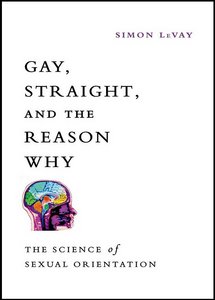
Gay, Straight, and the Reason Why: The Science of Sexual Orientation is a book by the neuroscientist Simon LeVay and published by Oxford University Press. The book received mainly positive reviews, praising it for LeVay's wide-ranging overview of scientific research on sexual orientation. In 2012, it received the Bullough Book Award for the most distinguished book written for the professional sexological community published in a given year.
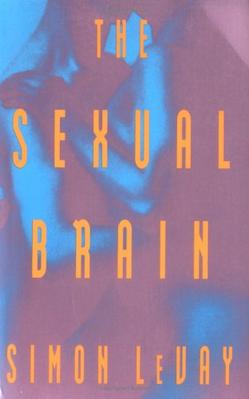
The Sexual Brain is a 1993 book about brain mechanisms involved in sexual behavior and feelings, and related topics such as sexual orientation, by the neuroscientist Simon LeVay. The book was praised as a well-written work on science. However, some reviewers pointed out factual errors, and noted that LeVay failed to prove that homosexuality has a biological basis.

Sex and Reason is a 1992 book about human sexuality by the economist and federal judge Richard Posner, in which the author attempts to explain sexual behavior in economic terms and discusses a range of controversial subjects related to sex, proposing reforms in American laws.

What Wild Ecstasy: The Rise and Fall of the Sexual Revolution is a 1997 book about the sexual revolution by John Heidenry. The book received mixed reviews. It was described as interesting and Heidenry was complimented for his discussions of figures such as Bob Guccione, Hugh Hefner, Larry Flynt, and Reuben Sturman. However, he was criticized for his research methods. He was accused of plagiarism because of the use he made of material by other writers, receiving criticism in particular from the journalist Philip Nobile. Critics also wrote that he focused disproportionately on pornography and gave insufficient attention to feminism and women's issues.

The Science of Desire: The Search for the Gay Gene and the Biology of Behavior is a 1994 book by the geneticist Dean Hamer and the journalist Peter Copeland, in which the authors discuss Hamer's research into the genetics of homosexuality.

The Homosexualization of America, The Americanization of the Homosexual is a 1982 book about LGBT rights in the United States by the gay rights activist Dennis Altman, in which the author discusses the emergence of gay people as a minority group. The book received positive reviews, crediting Altman with providing a useful discussion of gay people in the United States.




















